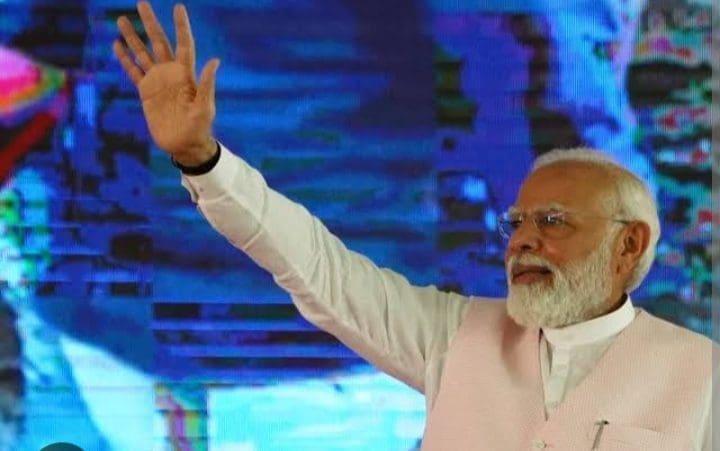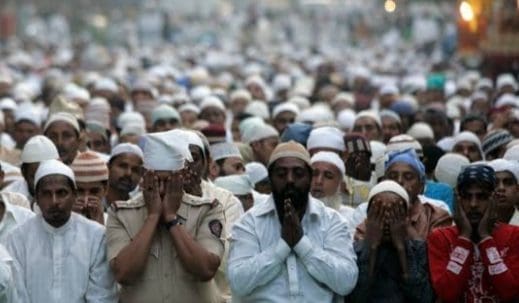Indian Court’s Controversial Order: Suppressing Al Jazeera Documentary on ‘Hate Crimes Against Muslims’ Stirs Debate
In a recent event, an Indian court obtained a restraining order prohibiting the transmission of an Al Jazeera documentary allegedly about ‘hate crimes against Muslims.’ This ruling has aroused debate and highlighted concerns about freedom of expression, media ethics, and minority rights protection in India. The court’s decision highlights the complicated dynamics underlying the media’s portrayal of sensitive themes, as well as the careful balance between public interest and potential societal upheaval.

Citing potential “harmful consequences” resulting from its broadcast, the Allahabad High Court in Uttar Pradesh, northern India, has restrained the Doha-based media network from screening the film titled “India… Who Lit the Fuse?” on Wednesday.

India is a multifaceted country noted for its vast cultural heritage and religious plurality. It is not, however, immune to outbreaks of religious conflict and communal violence. According to reports, the documentary in question, produced by Al Jazeera, investigates the rise of hate crimes against Muslims in India. It is crucial to point out that at the time of writing, this documentary had not been widely viewed or analyzed because its release had been halted by a court order.
The court’s decision to prevent the documentary from airing is based on worries about probable public disruption and the documentary’s potential to create a communal rift. The order contends that broadcasting such content will increase current tensions and instigate violence, necessitating its prohibition. Supporters of the rule argue that maintaining societal harmony and law and order should take precedence over unrestrained freedom of expression.
Meanwhile, Al Jazeera hailed the documentary as an “investigative film on hate crimes against Muslims in the country committed by Hindu supremacist groups.” According to the broadcaster, the program is substantiated by “testimony and documents” and uncovers the operations of Hindu supremacist organizations like the Rashtriya Swayamsevak Sangh (RSS), which serves as a right-wing ideological mentor to the ruling Bharatiya Janata Party (BJP). 
Additionally, the program features an interview with a former RSS member who divulges unsettling accounts of his training sessions in RSS camps, purportedly under the supervision of Indian Army personnel. According to Al Jazeera, the program depicted “harassment and targeting of nearly 700,000 Muslims in the northeastern state of Assam, governed by the BJP.”
The documentary also revealed “widespread campaigns across multiple Indian states to demolish properties belonging to Muslims,” according to the Doha-based news network.
The court’s decision has sparked a controversy between supporters of free expression and others who value social peace and harmony. Critics believe that limiting the documentary violates the fundamental right to free expression provided by the Indian Constitution. They believe that it impedes the media’s role in exposing social injustices and hinders open discourse, which is required for addressing societal problems.
Proponents of the court ruling, on the other hand, emphasize the potential consequences of airing content that could be inflammatory or polarizing. They claim that proper reporting is required to prevent the escalation of communal tensions and to guarantee the safety and security of its residents in India’s heterogeneous fabric. They emphasize that, while freedom of expression is important, it should not be absolute, and that appropriate constraints can be applied to maintain public order and societal well-being.
The ruling of the court also raises concerns regarding media ethics and the objective reporting of delicate matters. Critics believe that limiting the documentary compromises journalists’ roles and their responsibility to shine light on urgent societal issues. They argue that journalists should be free to explore and report on public-interest issues without undue interference or restriction.
Proponents of the court order, on the other hand, emphasize the significance of maintaining journalistic integrity and avoiding sensationalism or biased reporting. They say that when dealing with sensitive themes such as religious tensions, media organizations should take prudence in order to avoid the transmission of potentially incendiary or unsubstantiated content that could fuel more enmity.
The restraining order issued by an Indian court on the broadcast of an Al Jazeera documentary on ‘hate crimes against Muslims’ has sparked a debate over free expression, media ethics, and communal peace. While supporters argue for the preservation of social order and harmony, detractors emphasize the value of unrestricted free expression and the role of the media in highlighting societal issues. A democratic society must strike a balance between these competing interests. Finally, a climate that supports ethical journalism while also addressing valid worries about potential societal unrest is required.
The ban is identical to one imposed in January on the broadcast of a BBC documentary that questioned Prime Minister Narendra Modi’s leadership during the 2002 Gujarat riots.
‘India: The Modi Question’ focused on Modi’s role as chief minister of the Western state during riots in 2002 that killed at least 1,000 individuals, the most of them were Muslims.
Following the block, income tax raids on the BBC’s New Delhi headquarters occurred, as did a probe into the broadcaster in April for possible violations of foreign currency rules.

